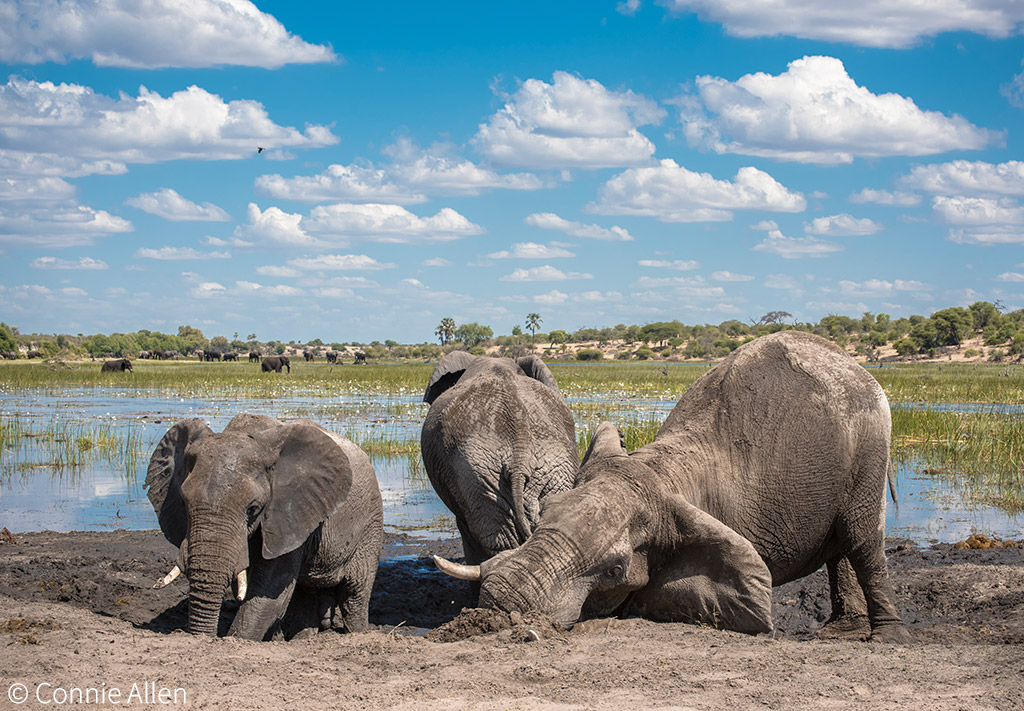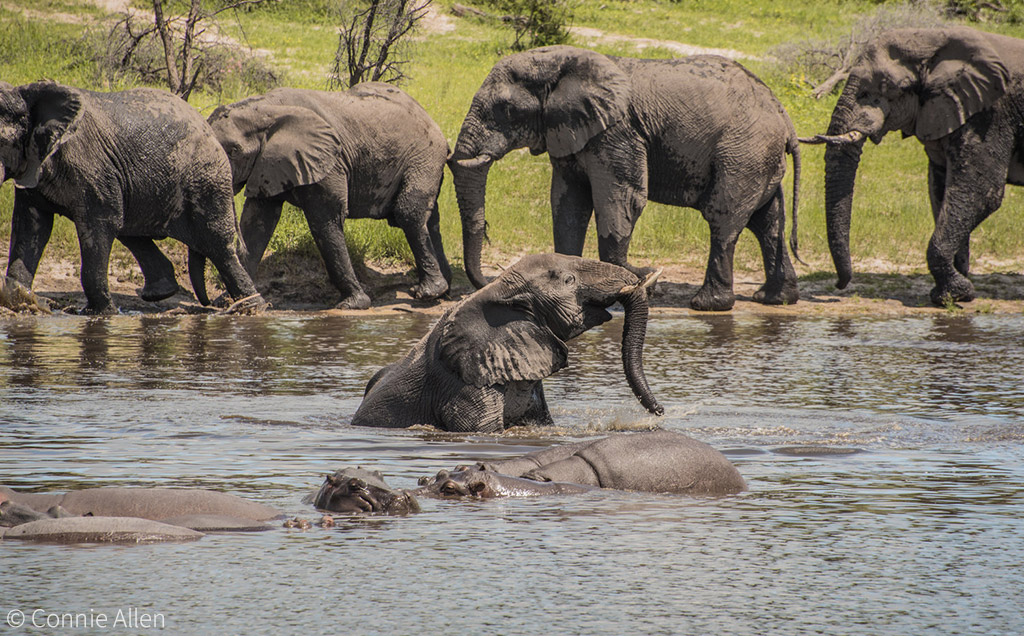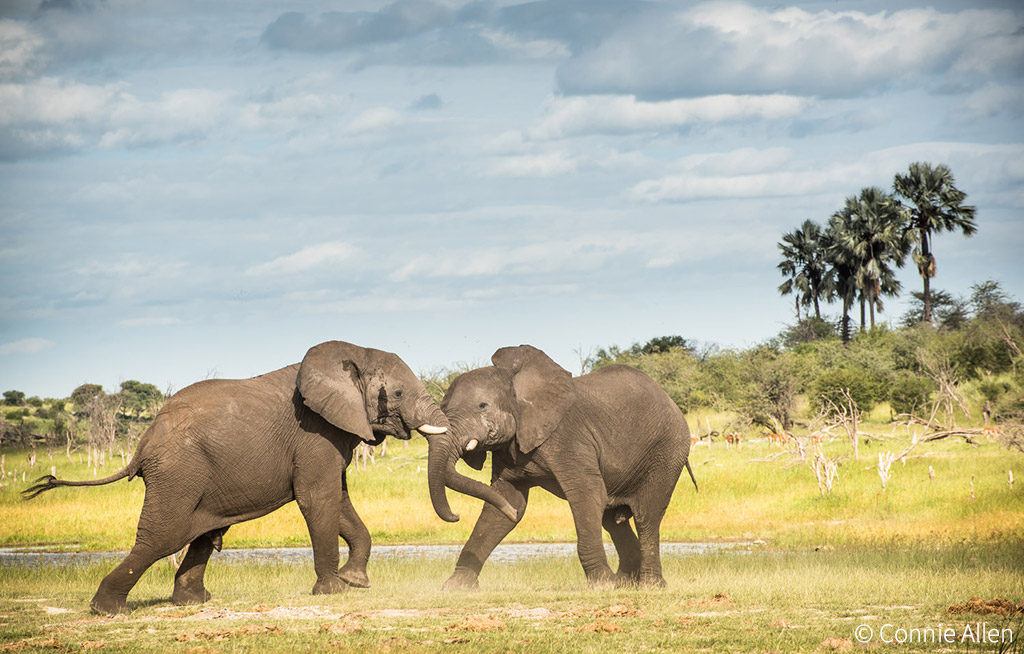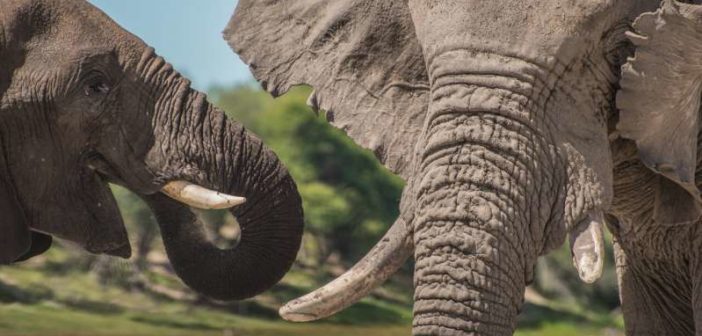
BY UNIVERSITY OF EXETER - SEPTEMBER 3, 2020 - PHYS.ORG
Old male elephants play a key role in leading all-male groups, new research suggests.
Trophy hunters justify targeting older bull elephants on the grounds they are “redundant” in terms of breeding and hence species survival.
But the new study, by the University of Exeter, shows the oldest bulls in all-male groups are the most likely to hold leading positions when the elephants travel, potentially helping younger, less experienced followers find food and water.
The study, in collaboration with Elephants for Africa, examined the movements of male African savannah elephants (also known as bush elephants) in Makgadikgadi Pans National Park, Botswana.
“Our results challenge the assumption that older male elephants are redundant in the population and raise concerns over the removal of old bulls that currently occurs in both legal trophy hunting and illegal poaching,” said lead author Connie Allen, of Exeter’s Centre for Research in Animal Behaviour.
“We argue that selective hunting of old bulls is not sustainable.
“Past research has shown in fact that old bulls are the prime breeders (they sire the most offspring) in African elephants.
“Our findings suggest that killing them could also have detrimental effects on wider elephant society through loss of leaders who help young, newly independent males navigate in unfamiliar, risky environments.”
Pre-adolescent male African savannah elephants live in herds led by females, but between age 10-20 they leave their natal family, spending most of their time in all-male groups.
The study divided male elephants into age groups (10-15, 16-20, 21-25 and 26+) and found probability of leadership—measured by which elephant walked at the front of travelling groups—increased along with age.
“Research on benefits of older individuals in long-lived social mammals has largely focused on females in matrilineal societies where, for example, older female elephants are most effective at making decisions crucial to herd survival, and old post-reproductive female killer whales lead collective movements in hunting grounds,” said Professor Darren Croft, of the University of Exeter.
“In contrast, less is known about the role of older males as leaders in long-lived social species.
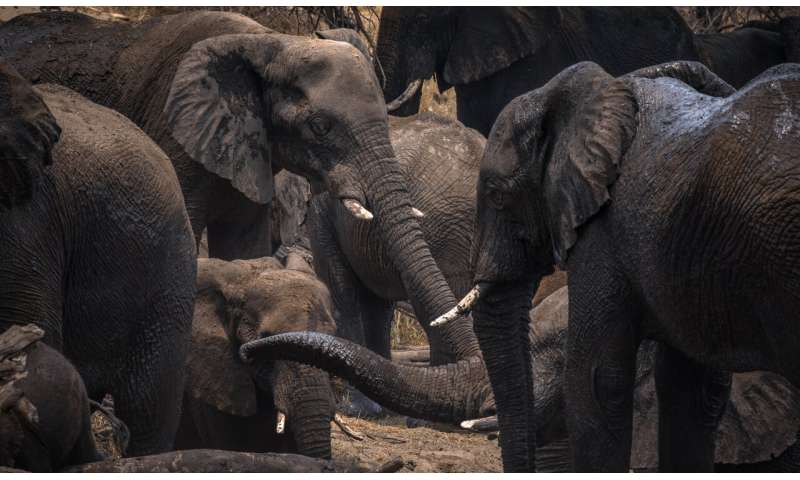
Male elephants. Credit: Connie Allen
“Our study suggests that bull elephants occupy a similar leadership role in male elephant society as old female matriarchs in breeding herds—and so they may require equal protection.”
Associate Professor Lauren Brent, of the University of Exeter, said: “This work highlights the need to examine other ways that younger males learn from experienced older males in long-lived mammals.”
Poaching, hunting and conflict with humans (such as killing by farmers) are the main causes of death among mature bull elephants, and their numbers are declining rapidly.
Older male elephants are usually targeted by trophy hunters as they have larger tusks, and often minimum ages are implemented by hunting operators.
Botswana has recently announced a decision to recommence elephant trophy hunting, and export quotas for the tusks of 400 elephants have been issued for this year.
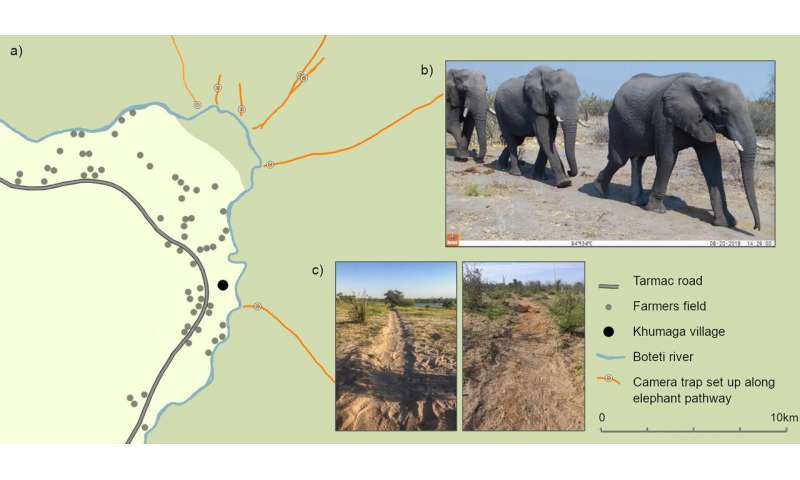
Credit: Credit: Connie Allen/University of Exeter
“The intricacies of male elephant societies have often been ignored in management and conservation decisions with the underlying assumption that once they leave their herd they are solitary and independent,” said Dr. Kate Evans, director of Elephants for Africa and a member of the Gothenburg Global Biodiversity Centre. “
This study furthers our understanding of male elephants and the importance of older bulls, enabling more sustainable management decisions for both male and female elephants to be made.”
The paper, published in the journal Scientific Reports, is entitled: “Importance of old bulls: Leaders and followers in collective movements of all-male groups in African savannah elephants (Loxodonta africana).”
Original post: https://phys.org/news/2020-09-males-vit ... eties.html
https://conservationaction.co.za/recent ... societies/



